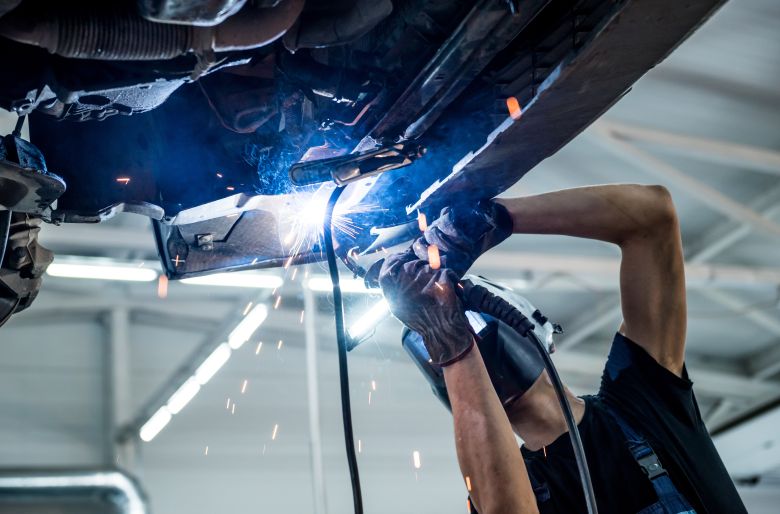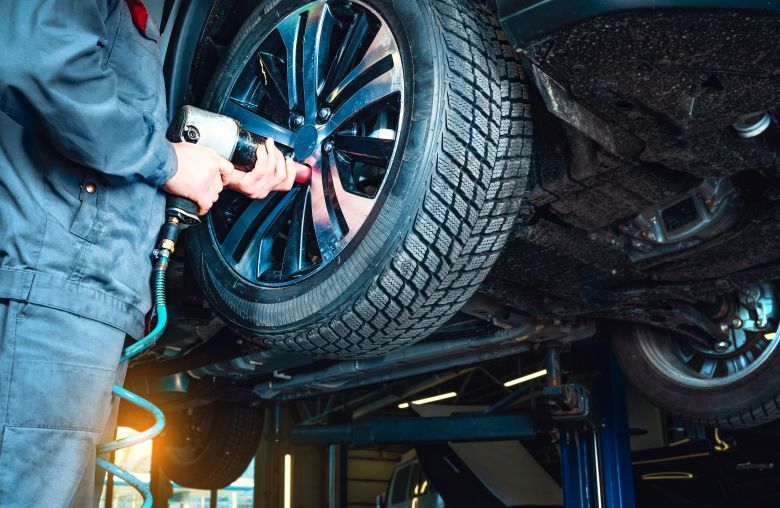
Gear Up: Essential Auto Tech Tools for Students
- Vehicle Maintenance, PEAK Squad
- PEAK
- November 11, 2025
Here is a list of the essential auto body tech tools that students need.
Signing up for auto tech school is a smart move — you'll be training to enter a well-paid career with a solid growth outlook and lots of interesting pathways. To hit the ground running, you'll want to be fully prepared from day one. That means being sure to have a complete set of the auto tech tools that every student needs.
Auto tech schools usually supply the big stuff: shop equipment, power equipment, diagnostic tools, and legally required safety supplies. However, it isn't practical for schools to provide every student with a complete set of hand tools and basic service gear. If they did, your tuition would be sky-high.
So, you're going to need to build your own toolset. Here, we'll explain a few practical matters that will help you along the way:
- Auto tech tools: What you need vs. what schools provide
- How to find your list of required tools
- After you graduate: Auto tech tools for launching your career
- How to budget and save on the tools you need
We'll also tell you about some scholarship programs that can help you manage your costs.
Auto tech tools: What you need vs. what schools provide
To start, it'll help to have a general idea of what you'll need. Your school will usually supply the "big stuff" that all students will share during classes. This includes things like:
- Shop equipment: Lifts, hoists, alignment tracks, wheel balancers, lathes, diagnostics stations … all the big, expensive equipment the pros use.
- Specialized equipment: Scanning tools, manufacturer-specific diagnostic devices, and precision testing instruments are provided.
- Power equipment: Pneumatic tools, battery chargers, air compressors, and similar equipment should be available for shared use.
- Safety gear: Schools are usually required by law to supply safety equipment like welding shields, ventilation systems, first aid kids, eyewash stations, and some types of personal protective equipment (PPE).

For your part, you'll need to bring most of the "small stuff" — handheld tools that everyone needs at the same time during a lesson. Details vary from one school to the next, so always obtain a specific tool list directly from your school.
In some cases, you might need a smaller toolset for your lower-level courses and a more complete set for your upper-level ones. This can work to your advantage, since it spreads your costs out a bit.
For a general idea of what you'll need, we compiled this list by comparing requirements from 10 different auto tech schools:
| Tool Type | Details (Example Only) |
|---|---|
| Socket Set |
|
| Wrenches |
|
| Screwdrivers |
|
| Pliers and gripping tools |
|
| Hammers |
|
| Additional Tools |
|
| Toolbox |
Box or lockable rolling cart Size limitations may apply |
You'll probably also need to pick up some safety equipment, supplies, and PPE that can't be shared among students. Things like:
- Ear protection
- Safety glasses
- Steel-toed boots
Some schools also require students to wear uniform shirts, which you can usually buy through the bookstore or an on-campus supplier. You might also need a laptop computer: some schools require them, others don't.

How to find your list of required tools
To sort out any confusion about what you need to bring, look to your school. Technical schools publish lists of the tools and equipment they expect students to bring. To find these lists — or links to them — try checking:
- Your program's internet landing page
- Online course descriptions for each of your classes
- Your school's student handbook
You can also try a targeted search using your favorite search engine. Try pairing a search term like "required auto tech tools" or "required tools for students" with what's called a "site operator." The site operator will limit the search to a specific website — your school's.
Use this format for your search query:
search term site:schoolname.edu
Imagine a fictional school called "High Rev Vocational Institute" that uses "highrev.edu" as its web domain. Your search would look like this:
required auto tech tools site:highrev.edu
That search will bring back super relevant results, but there's an off chance you still won't be able to find a complete list of all the tools you need. If that happens, the best thing to do is call your school, connect to someone in the auto tech department, and ask.
After you graduate: Auto tech tools for launching your career
Think of your tools as an investment: they'll stay with you for years, following you into your first automotive technician job after you graduate. When you turn pro, you may also want to add a few pieces of advanced equipment to your inventory. That way, you can impress employers with your commitment and serve customers as an independent mechanic or shop owner.
Recommended examples for new grads include:
- An automotive borescope for inspecting tough-to-reach areas without taking anything apart
- A battery tester/analyzer for checking battery condition and analyzing voltage, charge level, capacity, and internal resistance
- A professional-level diagnostic scanner (as an upgrade on the basic code reader that might already be in your toolset)
- A dial-type or electronic torque wrench set for ensuring proper tightness in keeping with manufacturer torque specifications
- A digital multimeter with frequency measurements, duty-cycle readings, and temperature readings
Start with the basics: you can usually pick up a battery tester/analyzer, digital multimeter, and torque wrench set for a few hundred dollars in total if you shop around. From there, you can add the bigger-ticket items if it looks like you're going to need them.

How to budget and save on the tools you need
Your auto tech tools will set you back a few bucks — some schools estimate total costs of up to $6,000–$8,000. At minimum, you should expect to spend somewhere in the neighborhood of about $1,000–$3,000. Even that is a stiff sum to plunk down out of pocket, especially when adding in your tuition and other costs.
As a first step, check to see if your school has any partnerships with tool manufacturers or suppliers. You could score some big savings on your auto tech tools if these partners offer discounts to students at your school.
From there, shop around for the best prices. Also, consider buying pre-owned tools — you could cut your costs down nicely if you buy gently used tools instead of new ones.
You can also try these money-saving strategies:
- Shop with online marketplaces: It's never been easier to connect with a worldwide network of sellers and tool vendors. Online marketplaces have new and used tools at super-competitive prices that could come in far lower than what you'd find at a traditional retailer.
- Timing is everything: Wait for clearance events, back-to-school sales, and holiday sales — especially during the Black Friday and Christmas seasons.
- Join online swap groups and forums: You could get lucky and find a former auto tech student in your area who has some, most, or all the tools you need for your classes.
Also, don't forget to check with your school to see what financial aid options it offers. You might qualify for a scholarship or grant, payment plan, or other program that will help you defer costs and free up some money to put toward your auto tech tools.
Connect with auto tech school scholarships from OWI and more
With some hard work and a little luck, you could score some serious financial help by landing an external scholarship. Try sources like the ASC Educational Foundation and the University of the Aftermarket Foundation — they're two major providers of auto tech school scholarships.
Consider PEAK your GPS for pursuing a career in the automotive industry. Find a wealth of resources and inspiration to support your auto technician journey here.

